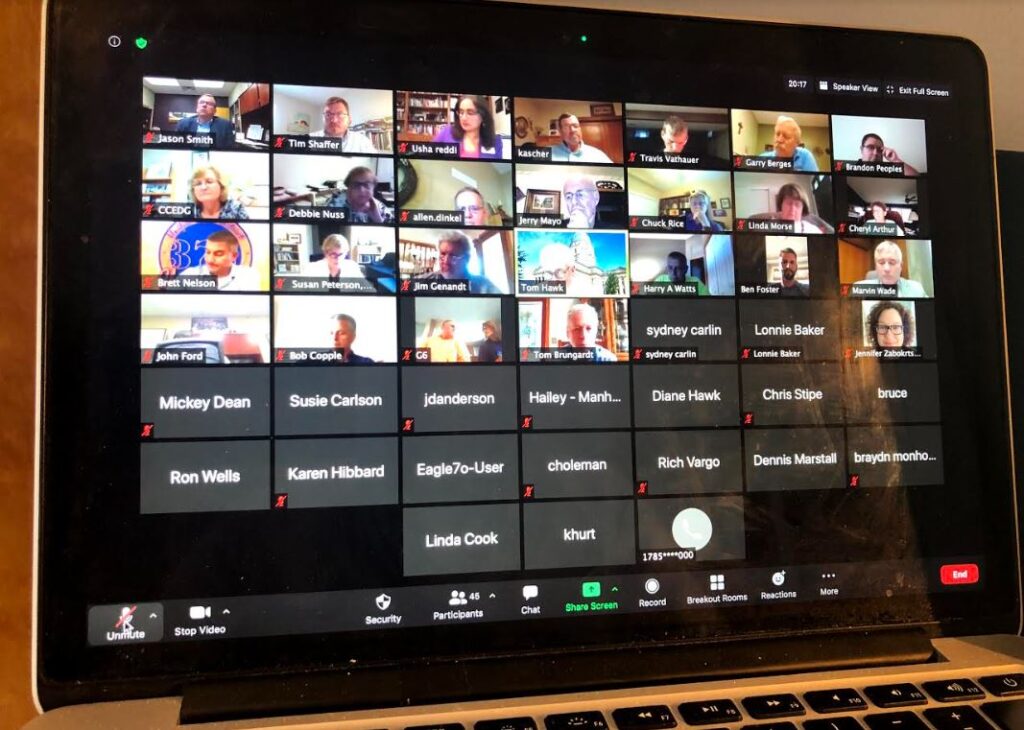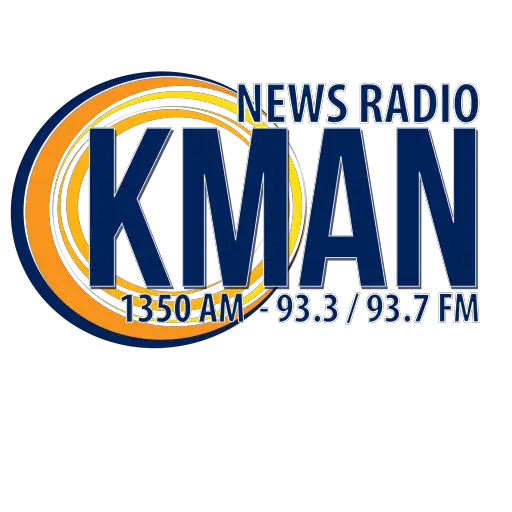Manhattan 22nd District State Senator Tom Hawk hosted a virtual Town Hall meeting Wednesday where he gathered input from local leaders on how best to spend federal dollars appropriated to Kansas through the Coronavirus Aid, Relief, and Economic Security (CARES) Act. The forum was moderated by Dr. Timothy Shaffer, Director of the Institute for Civic Discourse and Democracy at Kansas State University.
Hawk, who sits on the steering committee for Gov. Laura Kelly’s Strengthening People and Revitalizing Kansas (SPARK) Council, says $400 million has been allotted for distribution to each of Kansas’ 105 counties. A chief concern from counties has been the need for guidance on how to best appropriate dollars to businesses, healthcare, education and infrastructure.
“I will press, when we have our steering committee meeting, that we need to get some better guidelines. I don’t think, in the political climate we have in Topeka we will tell you exactly how to do that,” he said. “I think some strong suggestions on how you might go about that, I’m hearing my county commissioners say, that would be very helpful.”
Riley County stands to receive approximately $15 million, while Geary County will receive $6.4 million. Clay County’s appropriation is approximately $1.6 million. Pottawatomie County will receive about $4.9 million. Monies can be used as direct aid or as reimbursements for eligible payments under the CARES Act. Counties are encouraged to share their allotted funds with cities, school districts and local businesses. A full list of county allocations is available here.
A second round of funding is beginning in August and the task force anticipates up to $525 million will be distributed to counties. Public and private entities will have the option to apply for funding. Any money that isn’t spent by Dec. 30 will be returned to the federal government.

One talking point raised by Geary County Commissioner Keith Ascher was the likelihood that counties who have applied for federal emergency relief through FEMA, likely won’t receive the 75 percent reimbursement allotted to them by the federal government. He estimates that reimbursement likely to be closer to 30 or 40 percent. His hope is to hang on to the money rather than spend it right away.
“We don’t know what the second wave is going to be like and so we probably shouldn’t just be giving the money out right now until we know what’s down the road. From my standpoint it would be smarter to bank that money for a while,” he said.
Manhattan Mayor Usha Reddi advocated for a city alternate care site for potential COVID patients wanting to isolate themselves from their families, but can’t due to finances.
“Especially now when we have more people traveling between counties and between states. We need to make sure we have a place for all these people that are going to come back. K-State will have dorms, but we need to make sure we have something available in the city,” she said.
USD 383 Manhattan/Ogden Superintendent Dr. Marvin Wade says in a worst case scenario where schools are shut down again, the district would have a roughly $1 million funding gap to supply technology and connectivity to students and families for distance learning.
“If we had that, it would allow us to free up the funds to be able to do the PPE, the training for staff, the training for families to be able to do the other things we need. It’s getting those devices that is the issue right now,” he said.
Ascension Via Christi President and CEO Bob Copple says a big key will be on increased testing availability.
“I think that’s really key that we have that available especially for our vulnerable population, probably on a two-week interval, just to ensure that there’s an ability to do testing within 24 hours of that population,” he said.
Copple says public service announcements surrounding best practices may be another area to spend some of those dollars as well as encouraging people not to be afraid to seek healthcare for non COVID related issues. Additionally Copple encourages some money be spent on equipment for schools.
“Do they have UV lights so they can clean areas, or other technology that we have used in healthcare for years as a way to provide higher level sanitation. We’re talking hundreds of units, obviously very expensive,” he said.
There’s also some concern about broadband and whether municipalities would have enough time to lay the infrastructure necessary with these federal funds to ramp up connectivity into especially rural areas.
“I’d like to see some sort of funding for a study to show that we can actually fund broadband much more heavily in our state and still have some paybacks in terms of saving healthcare or educational dollars while still getting those outcomes,” said Ben Foster, President and CEO of Twin Valley Communications.
Foster says he’d like to see those incentive dollars up front if a company commits to building gigabit speeds, matching that to provide better quality outcomes for internet access.
Sen. Hawk also said younger workers may have a difficult time returning to work if there is no access to childcare, due to shutdowns or health precautions. He says that is an issue the Manhattan Area Recovery Task Force should look into to find solutions for those families. Whether appropriations will be made available, in the form of tax credits or other funding sources is uncertain.
Additional speakers at Wednesday’s virtual town hall included Lori Huber with Clay County Economic Development, Sue Peterson with Kansas State University, Lonnie Baker with Meadowlark Hills and Jerry Mayo with the Clay County Commission. Riley County Commissioners Ron Wells and John Ford took part in the meeting, but did not speak.
The full link to the town hall meeting is available above.
